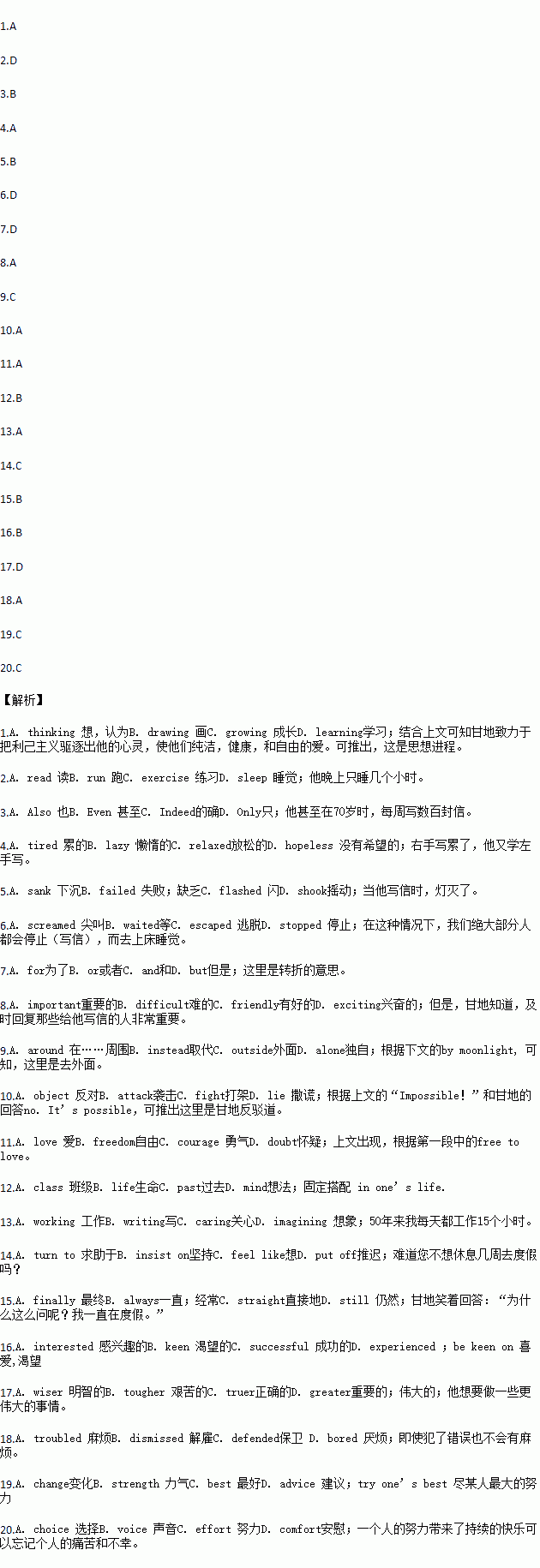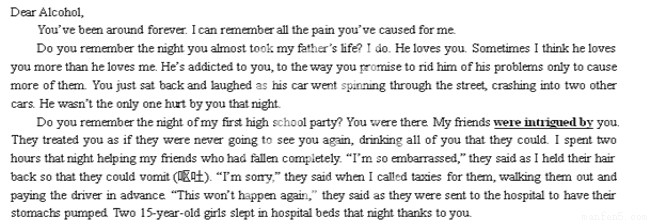题目内容
Gandi wanted so badly to help the world that he devoted himself to removing self-interest out of his heart and mind, leaving them pure, healthy, and free to love. It took him nearly twenty years to gain such control of his process.
When in South Africa, Gandi would sometimes walk fifty miles a day and only a few hours a night. into his seventies Gandi wrote hundreds of letters every week; when his right hand became , he learns to write with his left. Once, while he was writing a letter, the lantern giving light , in which case most of us would have and gone to bed, Gandi, knowing his timely reply would be particularly to those who had written to him, went and finished writing by moonlight. If asked to live like this, we would say,“Impossible!”Gandi would , “Oh, no. It’s possible, when your mind is flooded with 46 for all.”
Late in Gandi’s a Western journalist asked, “Mr. Gandi, you’ve been fifteen hours a day for fifty years. Don’t you ever taking a few weeks off and going for a vacation?” Gandi laughed and said, “Why? I’m on vacation.” This world-famous figure, who could have been prime minister of India and one of the richest men in Asia, announced he wasn’t on becoming rich or famous. He wanted something far – to place all his talents, resources, time, and energy in a trust for the world.
“You needn’t be if you’ve made mistakes. Just continue to try your . If you fall, pick yourself up and march on. If you cannot run, walk. If you cannot walk, crawl. The alone brings a continuing wave of joy in which every personal problem and every suffering is forgotten.” said Gandi.
1.A. thinking B. drawing C. growing D. learning
2.A. read B. run C. exercise D. sleep
3.A. Also B. Even C. Indeed D. Only
4.A. tired B. lazy C. relaxed D. hopeless
5.A. sank B. failed C. flashed D. shook
6.A. screamed B. waited C. escaped D. stopped
7.A. for B. or C. and D. but
8.A. important B. difficult C. friendly D. exciting
9.A. around B. instead C. outside D. alone
10.A. object B. attack C. fight D. lie
11.A. love B. freedom C. courage D. doubt
12.A. class B. life C. past D. mind
13.A. working B. writing C. caring D. imagining
14.A. turn to B. insist on C. feel like D. put off
15.A. finally B. always C. straight D. still
16.A. interested B. keen C. successful D. experienced
17.A. wiser B. tougher C. truer D. greater
18.A. troubled B. dismissed C. defended D. bored
19.A. change B. strength C. best D. advice
20.A. choice B. voice C. effort D. comfort


